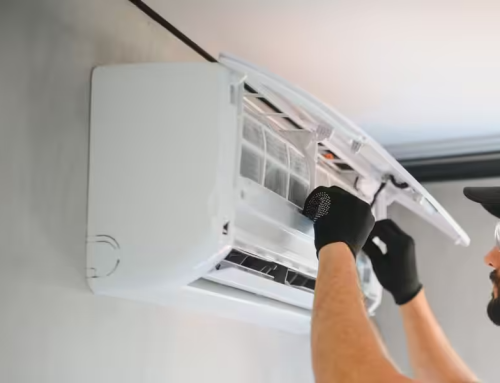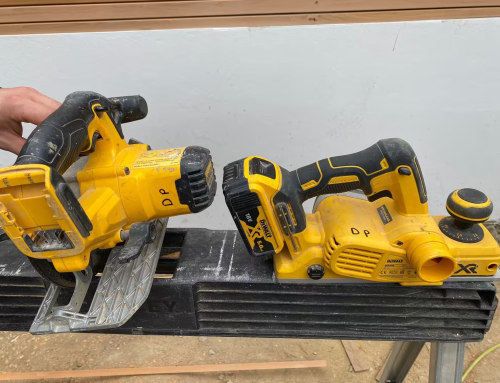
We explore the reasons why you should be protecting yourself against theft and why you should improve your van security.
What’s the scale of the problem?
Tool theft has become a major problem in the UK. According to figures released by the Metropolitan Police, it’s getting worse. The Met Police recorded 21,630 tool theft offences and 6,839 van theft offences across the UK between 2020 and 2021.
These figures are offences that were reported. According to The Tradespeople Against Tool Theft white paper written by On The Tools, 22.67% of tradespeople surveyed didn’t report their experience(s). This means, the number of actual tool thefts is likely to be much higher.
Where is the problem?
Tool theft is a crime that affects tradespeople across all trades and across the country. According to the white paper, which was written in partnership with Simply Business, the highest rate of tool thefts is in the South East with almost 18% of tradespeople reporting an incident. The lowest rate was found to be in Northern Ireland with only 1.6%.
Who is most at risk?
All tradespeople are at risk. Consider the value of your tools and where they are stored mostly. Probably your van. This is why it’s important to consider your van security as a priority.
The study states that the trade most at risk of tool theft, reporting the highest number of experiences are carpenters. It is believed this is because carpenters carry hand tools as well as a variety of expensive specialist power tools.
According to the statistics, 38.5% of tradespeople affected by tool theft, had their tools stolen from their van, outside their own home. The highest number of thefts took place at their place of work. A whopping 42.7% reported they had tools stolen from a customer’s home or building site.
Why is this happening?
Thieves sell the stolen tools on the second-hand tool market in various ways. Some are sold in person for example, at a car boot sale. Others are sold over the internet via various different marketplaces.
On The Tools asked tradespeople about their purchasing habits to try and understand who is driving the second-hand tool market. According to their findings, 77% of tradespeople surveyed said they do not purchase second-hand or refurbished tools.
Of the 23% of tradespeople who do buy second-hand and/or refurbished tools, the study found that the most common route for purchase was from friends, colleagues and family. This was followed by eBay, Facebook Marketplace, tool groups/forums, and car boot sales.
The white paper also asked consumers about their buying habits and found that 23% would buy second-hand and/or refurbished tools to keep costs down. Due to the Covid-19 pandemic, there has been an increased interest in home improvements and therefore a higher demand for tools and DIY products from consumers. On The Tools has recognised that these factors could have resulted in the consumer data being higher than it would have been before.
What happens if my tools are stolen?

Imagine that all of your tools were stolen overnight, or worse still, your van was stolen too? How will you carry out your work today with no van and no tools?
What do you do first? Do you contact the police? Your insurance company? The person you’re working for that day?
Other questions that might be running through your mind include: Will I get my tools back? Will my insurance pay out? How long will it take to get them replaced? What will the cost be to replace them? When will I be able to get back to work?
With all of these questions being raised, it’s clear that experiencing tool theft affects tradespeople in many different ways. It’s clear to see how not protecting your tools and not having the adequate van security can be detrimental to your livelihood.
How would tool theft affect me financially?
Even if your insurance company pays out for the stolen tools, there is still the excess to pay. According to the Tradespeople Against Tool Theft white paper, 51% of tradespeople were partially compensated and just 17% were fully compensated for their stolen tools.
The white paper also states that 52.3% of tradespeople had between £1,000 and £4,999 worth of tools stolen, with 2% having more than £20,000 stolen.
Not only is there the cost to replace the stolen tools themselves, as discussed, there is likely to be damage to repair to the van or property that was broken into for the tools to be stolen.
All of this takes time so there will inevitably be some loss of earnings whilst you’re trying to arrange for replacement tools and/or transport. You could also be put in a position where you have to decline new work because of how long it all takes.
Mental Health
Having looked at what happens if your tools are stolen, it’s no surprise that mental health is affected. There’s anxiety and worry that your tools might be stolen and how to best stop it from happening.
If your tools are stolen, this is quickly followed by anger and stress of getting your tools recovered or replaced, and you getting back to work.
How do I protect my tools and improve van security?
Keep a look out on the Trade Jobs news feed for our next blog. We explore how to protect your tools and improve your van security.





